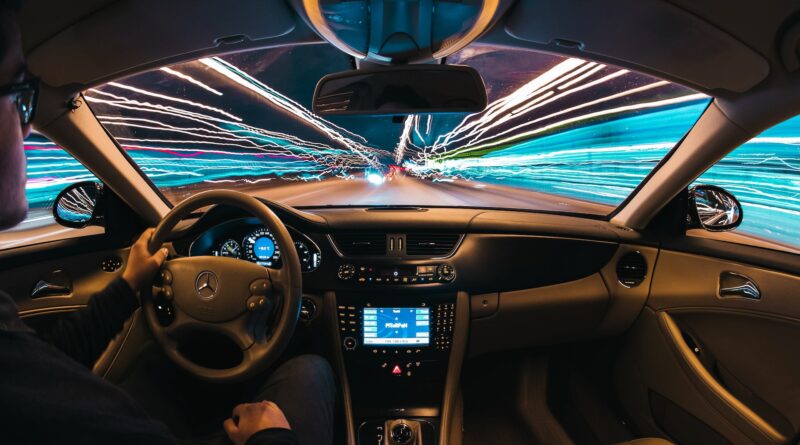Ford v Ferrari to ChatGPT v Bard
Ford v Ferrari to ChatGPT v Bard
Chirag Shah, University of Washington
It was 1963 and Ford had just failed to acquire Ferrari in its attempt to bolster its image with a racing section to the legendary automobile empire. It wasn’t so much of the outcome, but how it all rolled out—Ferrari pulled out of the deal at the last minute and instead made a deal with another Italian automaker, Fiat, humiliating Henry Ford II. Ford wanted a revenge and he knew the best way to do this is to humiliate Enzo Ferrari at Le Mans, the 24-hour-long race circuit.
The rest, as they say, is history. Thanks to Carroll Shelby and other innovators working for Ford, Henry Ford II achieved what he set out to do—defeat and humiliate Enzo Ferrari at Le Mans. In 1966, Ferrari didn’t even finish the race, while Ford took the top three spots as seen in the classic image captured that day.

The whole story in a stylized form is captured in the 2019 movie Ford v Ferrari. I’m not here to tell you about that movie or even this whole story. What I want to point out is what was missing in this rivalry between Ford and Ferrari: their users or drivers. Both companies were competing with each other in an effort to show their prowess in racing—who could build the fastest and most endurable cars. But these cars were not for an average driver. In fact, they wouldn’t even be street legal in most places, let alone someone actually being able to purchase and drive them.
But that didn’t matter. Neither Ford nor Ferrari was doing this to cater to the average driver, and yet their racing efforts were really geared to catch the attention of those drivers. In fact, that image you see above was carefully choreographed by Ford’s marketing team. When the race was coming to an end and it became clear that Ferrari wouldn’t even finish and Ford was in the lead, Ford’s PR person Leo Beebe came up with this idea of showing three Ford cars simultaneously at the finish line. It cost legendary racer Ken Miles his first place, but that didn’t matter. This was not about him or even racing. This was about showing to the world that Ford is the best and it can beat Ferrari.
—We are witnessing an AI race, much like Ford v Ferrari, where the main objective is to be better, faster, more endurable than the others—
Fast forward several decades and you notice a similar story playing out between Google and Microsoft. Sure, they are not trying to buy one another, but they operate in the same products and markets, where every bit of marketshare matters. For years, Microsoft’s search, which has gone through several name and interface iterations (MSN, Live, Bing), has struggled to claw any of Google’s giant marketshare. Google controls more than 85% of search market, whereas Microsoft’s Bing has a single-digit percent. Many innovations have happened by both these giants over the years, but nothing has really moved the needle.
But ChatGPT changed all that. Microsoft’s exclusive license with OpenAI allowed them to leverage the unprecedented popularity and success of ChatGPT to build their version of Ford GT40. This could be a game changer for Microsoft and Google feels it. 1% marketshare in search roughly translates to about $2B a year. That’s 2 Billion USD per year. If Microsoft could even take 5% of the share from Google, that’s $10B per year. That’s not some loose change.
No wonder Google feels threatened. Search and ad revenue from search is Google’s primary source of revenue. For a long time, it has held a comfortable position in that area with no credible threat in sight. And while Google had its plans with LaMDA, it was not feeling any pressure to rush its rollout. ChatGPT changed that. And now we are witnessing a race, much like Ford v Ferrari, where the main objective is to be better, faster, more endurable than the others. Did the users ask for this? Was this in response to a need or addressing a problem facing the humanity? I don’t recall seeing any research on that. Sure, there are many positive side effects of this racing mania—we finally have an input system that takes more than a few keywords, we can get responses in natural language, and we are one step closer to having free-form conversations with an artificial system.
But the primary drivers of these advancements right now are not addressing user needs or information access problems; they are, rather, driven by competition. Now, don’t get me wrong. Competition could be good. GT40 and the innovations that it brought then trickled down to consumer cars. And perhaps that’s the silver lining here—that the AI arms race we are seeing here will actually have some trickled-down positive side effects for the end users. But the dust is not settled here and the race is still on. Most of the users are able to just see this play out in front of their eyes, with frequent doses of hypes fed to them, and the invisible unmet need generated to justify the race. Time will tell and perhaps we will have multiple winners here, but right now this is Ford v Ferrari playing out all over again, with lots of smoke, lots of noise, and no real users.
Cite this article in APA as: Shah, C. (2023, March 30). Ford v Ferrari to ChatGPT v Bard. Information Matters, Vol. 3, Issue 3. https://informationmatters.org/2023/03/ford-v-ferrari-to-chatgpt-v-bard/
Author
-
Dr. Chirag Shah is a Professor in Information School, an Adjunct Professor in Paul G. Allen School of Computer Science & Engineering, and an Adjunct Professor in Human Centered Design & Engineering (HCDE) at University of Washington (UW). He is the Founding Director of InfoSeeking Lab and the Founding Co-Director of RAISE, a Center for Responsible AI. He is also the Founding Editor-in-Chief of Information Matters. His research revolves around intelligent systems. On one hand, he is trying to make search and recommendation systems smart, proactive, and integrated. On the other hand, he is investigating how such systems can be made fair, transparent, and ethical. The former area is Search/Recommendation and the latter falls under Responsible AI. They both create interesting synergy, resulting in Human-Centered ML/AI.
View all posts





